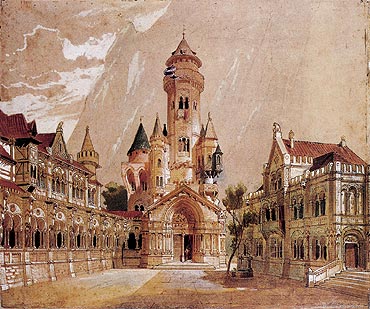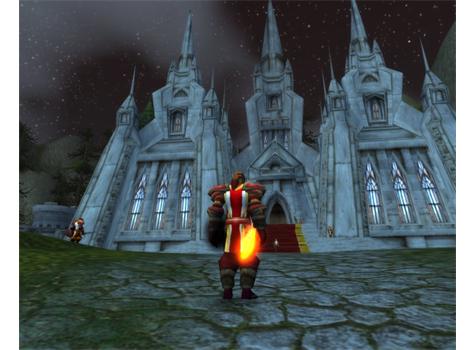Matt's Hat at Moviestorm Office Xmas Party, by David B. The hat gets to all sorts of interesting places. Fortunately it usually takes me along for the ride.
Sunday, December 28, 2008
Saturday, December 27, 2008
Chew Valley Lake
Imagine looking out of your window and seeing this every day. I'm not jealous. Much.
This is West Harptree, near Chew Valley Lake in Somerset, where my mum's husband's sister Pat lives. More pics from sunset on Boxing Day 2008 on my Flickr site.
This is West Harptree, near Chew Valley Lake in Somerset, where my mum's husband's sister Pat lives. More pics from sunset on Boxing Day 2008 on my Flickr site.
Saturday, December 20, 2008
Monday, December 8, 2008
Stand by Me
Thanks to sizemore for pointing me at this truly excellent and inspiring video. Normal blogging will be resumed after I get over my jetlag.
From the award-winning documentary, "Playing For Change: Peace Through Music", comes the first of many "songs around the world" being released independently. Featured is a cover of the Ben E. King classic by musicians around the world adding their part to the song as it travelled the globe. This and other songs such as "One Love" will be released as digital downloads soon; followed by the film soundtrack and DVD early next year.
Sign up at www.playingforchange.com for updates and exclusive content available only to those who join the Movement to help build schools, connect students, and inspire communities in need through music.
From the award-winning documentary, "Playing For Change: Peace Through Music", comes the first of many "songs around the world" being released independently. Featured is a cover of the Ben E. King classic by musicians around the world adding their part to the song as it travelled the globe. This and other songs such as "One Love" will be released as digital downloads soon; followed by the film soundtrack and DVD early next year.
Sign up at www.playingforchange.com for updates and exclusive content available only to those who join the Movement to help build schools, connect students, and inspire communities in need through music.
Wednesday, December 3, 2008
Me. Talking. Again.
Since I've been going mad twittering recently, my blogging has fallen a little by the wayside. I know you all miss my erudite, controversial, and entertaining words of wisdom. Fear not! You can listen to me instead.
I shall now return to being my usual shy and retiring self, communicating via prose.
- Today's offering is an interview with the creative genius behind Male Restroom Etiquette, Apology, and other works of machinima legend. The truth will out, that's all I'm saying. You may never see the Overcast the same again. That's Sideshow #021
- Earlier in the week, I chatted to Joseph Matheny about machinima over on Alterati. That's seen the light of day at G-Spot #47.
- And last week, I did a webcast for The Movies On Air, which clocks in at somewhere near 90 minutes. That mainly focuses on Moviestorm and where we plan to take it.
I shall now return to being my usual shy and retiring self, communicating via prose.
Tuesday, December 2, 2008
WoW, the Opera
Raph Koster's keynote speech at Living Game Worlds in Atlanta has left my brain spinning with ideas and new perspectives. The enduring image I'm left with is a juxtaposition of a set from Wagner's Lohengrin, and one from World of Warcraft. Raph's thesis was that Big Gaming is rapidly becoming like opera, in a world dominated by Britney Spears.

What we're seeing is a huge growth of casual gaming, mobile gaming, and entertainment based on simple web apps. These games are cheap to produce, and deliver a small burst of simple fun, accessible by anyone. They don't require much investment in time, and you can get them anywhere, any time. They're mostly disposable, but they pass the time. It's like pop music. The three-minute pop song has taken over. Most songs - even the popular ones - are simple, formulaic, and forgettable, but they're ubiquitous and profitable.

By comparison, Big Games are expensive, hard to make, and only available to a minority, who can afford the right hardware. They can be profitable, but many (most?) aren't. Halo, WoW, and the like are the exceptions. Their business model is a gamble - the same gamble as movies. You pour money in, release it, and hold your breath to find out whether you've made your money back inside two weeks, or else you've had it. In many ways, they represent the apex of this art form. They're rich, they're deep, they're beautiful to look at, and they're incredibly well produced. But they take time to appreciate and to learn. They're not something you just dip into. That's opera. It's big, luxurious, expensive, and only really appreciated by a minority who regard themselves as more cultured than the hoi polloi.
(For the record, I'd like to state that I like opera. Especially Wagner.)
I reckon most WoW players will be pretty steamed up by now. Look at the size of the audience, you're saying. Look how popular it is. It's mainstream. What do you mean?
OK, let's look at the size of the market. So there are maybe 10m people who play WoW. There are 50m people who have played Line Rider. 150m people played Scrabulous. Habbo Hotel has 115m subscribers. Nintendogs, Brain Training and the like are still selling 1m units a week after a year or more. And WoW's one of the biggest of the big dogs - most other MMOs and AAA games struggle to hit 1m players.
Next, accessibility. 30% of people access the Net exclusively via a mobile device. 30% more access the Net via a mobile device at least 50% of the time. In other words, the computer is now a minority way to get to the Net, and its share is shrinking. Even within the computer space, there's a drive towards entry level machines. Although technology is improving, a smaller and smaller proportion of people have top end kit. Most people have low-cost machines. So when you design for the top graphics cards and powerful CPUs, you're designing for a smaller and smaller proportion of a shrinking market.

Then there's the learning curve. How long does it take to learn to play WoW? And play it well? And how long to learn to throw penguins into space with a rubber band? You've got to be pretty dedicated to even bother getting into something as rich as WoW. In fact, it's not just a game, it's a lifestyle choice, and most people don't actually want to devote their lives to a game.

So sure, if you're a loyal WoW player, then WoW is the biggest thing in the world. Take a few steps back, look at the bigger picture, and it's really just a small niche.
This isn't an attack on Big Gaming. It drives innovation, it's hugely entertaining, and it lays down cultural benchmarks. It's a perspective shift. The entertainment world is now dominated by new forms of games. They may not be as good or as memorable as the Big Games, but that's where the money is, and where the majority of the people are. Are we, perhaps, seeing the beginning of the end of this branch of the art form?
Maybe what we should be looking out for is the Andrew Lloyd Webber of the game world. All the trappings of opera, but with plenty of tunes you can hum and mass appeal.


What we're seeing is a huge growth of casual gaming, mobile gaming, and entertainment based on simple web apps. These games are cheap to produce, and deliver a small burst of simple fun, accessible by anyone. They don't require much investment in time, and you can get them anywhere, any time. They're mostly disposable, but they pass the time. It's like pop music. The three-minute pop song has taken over. Most songs - even the popular ones - are simple, formulaic, and forgettable, but they're ubiquitous and profitable.

By comparison, Big Games are expensive, hard to make, and only available to a minority, who can afford the right hardware. They can be profitable, but many (most?) aren't. Halo, WoW, and the like are the exceptions. Their business model is a gamble - the same gamble as movies. You pour money in, release it, and hold your breath to find out whether you've made your money back inside two weeks, or else you've had it. In many ways, they represent the apex of this art form. They're rich, they're deep, they're beautiful to look at, and they're incredibly well produced. But they take time to appreciate and to learn. They're not something you just dip into. That's opera. It's big, luxurious, expensive, and only really appreciated by a minority who regard themselves as more cultured than the hoi polloi.
(For the record, I'd like to state that I like opera. Especially Wagner.)
I reckon most WoW players will be pretty steamed up by now. Look at the size of the audience, you're saying. Look how popular it is. It's mainstream. What do you mean?
OK, let's look at the size of the market. So there are maybe 10m people who play WoW. There are 50m people who have played Line Rider. 150m people played Scrabulous. Habbo Hotel has 115m subscribers. Nintendogs, Brain Training and the like are still selling 1m units a week after a year or more. And WoW's one of the biggest of the big dogs - most other MMOs and AAA games struggle to hit 1m players.
Next, accessibility. 30% of people access the Net exclusively via a mobile device. 30% more access the Net via a mobile device at least 50% of the time. In other words, the computer is now a minority way to get to the Net, and its share is shrinking. Even within the computer space, there's a drive towards entry level machines. Although technology is improving, a smaller and smaller proportion of people have top end kit. Most people have low-cost machines. So when you design for the top graphics cards and powerful CPUs, you're designing for a smaller and smaller proportion of a shrinking market.

Then there's the learning curve. How long does it take to learn to play WoW? And play it well? And how long to learn to throw penguins into space with a rubber band? You've got to be pretty dedicated to even bother getting into something as rich as WoW. In fact, it's not just a game, it's a lifestyle choice, and most people don't actually want to devote their lives to a game.

So sure, if you're a loyal WoW player, then WoW is the biggest thing in the world. Take a few steps back, look at the bigger picture, and it's really just a small niche.
This isn't an attack on Big Gaming. It drives innovation, it's hugely entertaining, and it lays down cultural benchmarks. It's a perspective shift. The entertainment world is now dominated by new forms of games. They may not be as good or as memorable as the Big Games, but that's where the money is, and where the majority of the people are. Are we, perhaps, seeing the beginning of the end of this branch of the art form?
Maybe what we should be looking out for is the Andrew Lloyd Webber of the game world. All the trappings of opera, but with plenty of tunes you can hum and mass appeal.

Subscribe to:
Comments (Atom)




